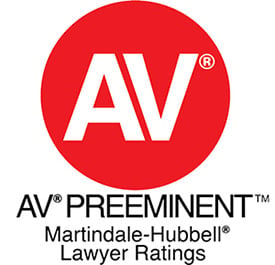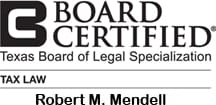Frequently Asked Questions
Should a business use a “doing business as” name?
Depending on the business marketing strategy, a business may need to use a “doing business as” name, also known as a “d/b/a” or a “fictitious business name.”
For instance, a sole proprietor runs the business alone and the business’s legal name will be the sole proprietor’s full name. But the sole proprietor may market the business as AA Appliances. In that case, the business’s legal name is different than the name under which it operates and is known by customers. The sole proprietor is using a “doing business as” name. A “doing business as” or “d/b/a” name is also known as a “fictitious business name.” Most states require that businesses register fictitious business names or d/b/a names.
Using a “doing business as” name is common practice for businesses. The d/b/a name will usually be the cornerstone for marketing efforts, and will work much more effectively than the business’s name. Some business entities may be barred from using a d/b/a name in some states, however. This usually involves professional business entities that must be known by the names of their owners. In most other cases, using a “doing business as” name or “fictitious business name” is permissible, as long as it is registered with the state.
Should a business lease or buy equipment for the business?
For companies that rely heavily on equipment to produce their products or services, deciding whether to buy or lease equipment can be a critical aspect of the business plan. Even for businesses that rely more heavily on retail or other business models, financing equipment to start the business can be expensive. This issue should definitely be resolved before owners approach investors and others for financing.
Buying equipment guarantees ownership over important resources for the business for the long term. But purchasing equipment outright can be very expensive. And especially in fields where equipment and technology rapidly become obsolete, it can be cost-prohibitive to maintain the newest and most advanced equipment. Thus, business owners who decide to buy equipment must also face the fact that the equipment will depreciate over time.
Leasing equipment, on the other hand, offers more flexibility for updating outdated equipment and may be cheaper in the short term. The downside to leasing is that over time, the costs of leasing may outweigh the costs of owning the equipment outright. Each business owner must consider the needs of the business and the amount of money that will be invested before deciding whether to lease or buy.
How do business owners transfer businesses to their children?
Many family businesses struggle with the question of transferring ownership or control of the business to children. The Small Business Administration (SBA) estimates that only a third of all businesses are successfully transferred from one family member to another. But the SBA also estimates that family businesses make up almost 90 percent of all business in the United States and pay a large portion of American wages, so their contributions add a lot to the American pocketbook.
Family businesses face at least four hurdles to successful transfer of control of the business: lack of planning, unwillingness on the part of the owner to transfer control, unwillingness on the part of the child to manage the business and dwindling prospects for the business. Unless these hurdles can be overcome, the odds are against successful transfer of control within the family.
Experts advise that for an owner to successfully transfer a business to children or other family members, the owner must carefully consider the following: strategic planning for the business, knowledge of the family and its members’ strengths and weaknesses, choosing a successor and willingness to make succession work. Through careful succession planning, a business owner can successfully transfer control and ownership to the next generation. An experienced business attorney can assist a business owner desiring to transfer the business to the next generation.
Should an entrepreneur use a credit card to finance a start-up?
Many entrepreneurs are faced with a dilemma when trying to start up their businesses: how can they obtain the capital they need to begin? In many cases, entrepreneurs are not able to convince banks and lenders to loan money for an untested business idea. Business owners may approach investors for capital, but the investors may show little interest or offer outrageous terms for the capital.
Business owners can use their own money to finance their ideas, but for those with limited savings, this can prove a problem. Therefore, an entrepreneur may choose to bankroll business expenses with credit cards. Obviously, this method of financing comes with great risks. Many credit cards offer less favorable terms than a traditional bank loan. Credit card companies can demand double-digit interest rates and may freeze credit with little notice to the credit card holder.
Financing start-up expenses through credit cards can offer some advantages. Disciplined business owners who pay off their balances each month can take advantage of a credit card’s easy use and can earn interest on their own money before they pay their balances. But because of the financial risks with credit cards, entrepreneurs may want to exhaust all other avenues for financing including friends, family or small business loans before resorting to financing their businesses on credit.
Who is considered an independent contractor?
Many employers use independent contractors to carry out essential aspects of their businesses. Many independent contractors enjoy the freedom of self-employment as they perform freelance work for various companies. But who is considered an independent contractor and what implications does that have?
The term “independent contractor” has its primary implications in the tax arena. An independent contractor works for a business and performs distinct tasks for the employer. An independent contractor could be a writer in a marketing company who writes for certain projects as the need arises. An independent contractor is generally not guaranteed work but may be tapped for certain jobs on an “as-needed” basis.
The Internal Revenue Service’s rule for determining who is an independent contractor is that the employer has control over the end result, but the independent contractor has control over how the work will be completed. In all cases, the IRS has the final say on whether a worker is an independent contractor.
How should a business owner use a business plan?
Many entrepreneurs balk at the idea of drawing up a business plan, preferring to get elbow-deep in their businesses rather than consider the potential and risks of their ideas. But many, if not most, businesses would benefit from the serious consideration and planning that are required to draft a business plan. Besides this advanced planning, businesses also gain a valuable tool to present to lenders, investors and interested third parties to obtain financing or other backing.
A business plan is a formal document that includes information on the business’s products or services, the financials, a marketing analysis, the business owners and management and any funding requests, along with other information that interested parties may find helpful. Because of its comprehensive details on the business and its products or services, the business owner will want to control access to the plan.
Drafting a business plan takes time and effort, but business owners can optimize business potential by carefully considering the elements of the business plan. As the business grows, the business plan can serve as a reference for professional contacts and a future road map for growth and development. An experienced business attorney can assist a business owner to draft a formal business plan.
What types of insurance will a business owner need for the business?
Depending on the nature of the business entity, a business may need several types of insurance to guarantee coverage in the event of a claim. A business may need contents insurance to cover inventory and supplies. Second, general liability insurance may be necessary to cover accidents that occur on the property. Business owners may also want to obtain coverage on motor vehicles used for business purposes.
Besides insurance for the business itself, a business owner may want to obtain insurance for the business’s products and actions. If the business performs repairs or services, completed operations insurance may be necessary to cover occurrences when a customer claims injury or damages after using something that was fixed by the business. To cover claims arising from the business’s products, the business owner will want product liability insurance for injuries or damages stemming from product malfunction. For professional services, such as a law firm or medical practice group, professional liability insurance may be necessary to cover damages.
For business owners running their businesses from their homes, it is especially important to obtain insurance on the business. In fact, business activities in the home may even void a homeowner’s policy, so home-business owners should consult with their insurer about their insurance coverage. Home-business owners may be able to obtain a rider for a homeowner’s policy, a new in-home business insurance policy or a Business Owner’s Package (BOP) policy.
What requirements must employers comply with before hiring employees?
Besides federal and state laws that prohibit discrimination in the workplace and mandate standards for worker safety, employers must fulfill several basic requirements before employing workers. Employers must determine if the worker is an employee or an independent contractor. Issues such as tax withholding from employee paychecks and liability may be implicated by this decision. Employers should use federal and state guidelines to determine whether workers are employees or independent contractors.
Employers should obtain federal and state employer identification numbers, which are used for tax purposes. Depending on the state, employers may also be required to participate in a worker’s compensation insurance pool and obtain an unemployment compensation identification number.
Employers will need to verify compliance with immigration status by obtaining certain documents from the potential employee. At this time, employers will also want to ensure that the potential employee completes forms for federal and state tax withholdings. Information on payments required to satisfy child support or alimony awards should also be gathered, where applicable. Some states may have additional requirements for employers, so employers may want to consult with an experienced employment law attorney to ensure compliance with federal and state laws.
What taxes must businesses pay?
Businesses, no matter how they are formed, must pay federal taxes on the income that they earn, but the amount and the forms required differ depending on the business entity. For example, sole proprietors will report income from their business activities on their individual income tax returns. Partnerships will also report income on their individual returns, but they also need to file information returns. All other business entities will file business income tax returns for their specific type of business entity.
In addition, many states and a few cities also tax income, so businesses may have to file income tax returns with those entities as well. Besides income taxes, self-employed persons (such as sole proprietors) must also pay self-employment tax to cover their contributions to Medicare and Social Security. For businesses with employees, employers must pay employment taxes for their employees to cover Medicare, Social Security and federal unemployment contributions. In addition, certain businesses will owe an excise tax if they produce certain products or use certain modes of transportation. Businesses involved in wagering and other activities must also pay an excise tax.
What is a Small Business Administration loan?
New businesses have always struggled to obtain start-up financing. Banks and lenders want adequate guarantees that the loan will be repaid. New business entrepreneurs frequently have little to no experience with business loans. With no history of loan repayment, applicants are often turned down for business loans.
This is where the Small Business Administration steps in. The Small Business Administration, also known as the SBA, offers programs for small business owner to apply for loans. The SBA is not the lender for these projects. Instead, the SBA works with lenders who have agreed to participate in SBA programs. Many banks in America participate as lenders with the SBA.
The SBA and the lender bank agree that the SBA will guarantee a certain portion of the loan if the lender offers a loan to a small-business applicant. The lender’s loan offer must meet certain SBA standards. In this way, the loan is guaranteed in part by the SBA.
The SBA offers several types of loan programs: the Basic Section 7(a) Loan Guaranty Program, the Section 504 Certified Development Company (CDC) Program and the MicroLoan, a Section 7(m) Loan Program. An experienced business law attorney can advise you on small business loans if you have questions.
Learn More: Business Organizations and Transactions
Running a business is a dream for many people, but the legalities and hurdles can be daunting. Simply starting up with an idea and some funds to tide the owner over until the business makes money can be appealing. Indeed, many sole proprietorships and even large companies start out that way. But basic planning and advice from a business law attorney can propel a one-person enterprise to greater profits and a more focused business with quality products and services.
First, business start-ups should plan to begin as they mean to go on. Assistance from a business organizations lawyer can help the entrepreneur to select a business entity that will allow for the most profits and tax advantages. Entrepreneurs can choose from sole proprietorships, partnerships, corporations, limited liability companies and other entities depending on the state in which they operate.
Sole proprietorships are run by a self-employed person who has not organized his or her business into a formal business entity.
Partnerships are formal or informal agreements to work cooperatively and share the profits and losses from the business. Partnerships can be general partnerships in which all the parties share in the profits and losses and are liable for the acts of the business. Partnerships can also be limited partnerships in which one or more partners contribute capital to the partnership and share in a percentage of the income (and perhaps losses) but do not take an active role in the partnership’s activities.
Corporations are formally organized business entities. Organizers of the corporation must comply with state laws and regulations to begin and maintain the corporation. The corporation is usually governed by a board of directors and corporate officers. Shareholders can participate in the profits and losses of the corporation by buying shares in the corporation. The corporation is considered a separate legal entity from its directors, officers and shareholders and has perpetual existence.
Limited liability companies, also known as LLCs, are organized to offer limited liability for their members. That is, members will not be liable for the LLC’s debts and obligations. LLCs usually exist for a specified number of years. Like corporations, LLCs must file documents with a state agency to maintain their status.
Most states allow operation of all the businesses discussed above and some states also offer different varieties of these businesses. The selection of a business entity usually has tax implications, as well as an effect on how the business’s profits may be distributed. An experienced business law attorney can advise a business owner on the best course of action for the business, depending on the owner’s goals.
Copyright © 2008 FindLaw, a Thomson Reuters business
DISCLAIMER: This site and any information contained herein are intended for informational purposes only and should not be construed as legal advice. Seek competent counsel for advice on any legal matter.



